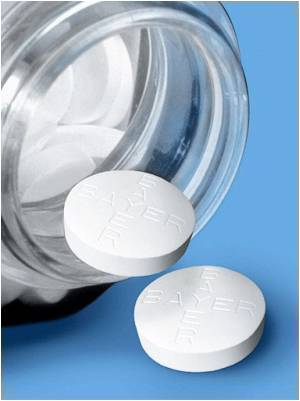
Previous studies had suggested that the lack of clinical benefit was due to "aspirin resistance."
Subjects in the PHS were 22,071 apparently healthy U.S. male physicians, aged 40-84 at entry, without prior history of cardiovascular disease, cancer or other major illnesses.
Participants assigned to aspirin who were non-compliant (did not take the 180 study pills per year) had no significant reduction in risk of myocardial infarction. Furthermore, participants assigned to aspirin who self-selected the use of NSAIDs had no significant reduction in risk of myocardial infarction.
All of these observations contribute to the formulation of the researchers' hypothesis that non-adherence or NSAIDs use explains the lack of clinical benefit of aspirin on first myocardial infarction which has been attributed to "aspirin resistance."
Their observations also imply that the interrelationship between laboratory measurements used to indicate inadequate anti-platelet responses to aspirin and "treatment failure" requires evaluation in randomized trials designed to test this hypothesis.
Advertisement
The study has been published in the May issue of the American Heart Journal.
Advertisement
TAN














